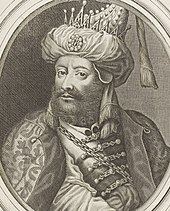Free Courses Sale ends Soon, Get It Now


Free Courses Sale ends Soon, Get It Now



Copyright infringement is not intended
Context: In his address from the Red Fort to mark the 400th birth anniversary of the ninth Sikh Guru, the Prime Minister Recalling the sacrifice of Guru Tegh Bahadur — he was beheaded on the orders of Mughal emperor Aurangzeb at the site where Gurdwara Sis Ganj Sahib stands opposite the Red Fort.
About Aurangzeb:
Aurangzeb’s religious policy had two aspects i.e:
(i) To promote the tenets of Islam and to ensure that the people led their lives accordingly.
(ii) To adopt anti-Hindu measures.
https://indianexpress.com/article/india/guru-tegh-bahadur-anniversary-pm-says-fanaticism-couldnt-deter-india-7881100/
© 2024 iasgyan. All right reserved